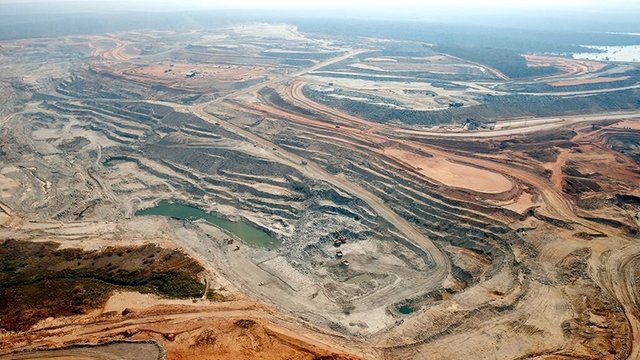Zambia stands up to mining companies

Starting in June, Zambia's brand new mining taxation regime will enter into force. Following claims circulated by multinational mining houses that dominate the country's sector, the new legislation will ignite"mass layoffs" and threaten a collapse of the country's economy.
However, if we really want to have an honest discussion about mining and Social growth, any objective examination of these numbers suggests precisely the opposite result.
Minister Mwanakatwe announced the program last September, with aims to shore up Zambia's foreign exchange reserves and rein in debt to set the nation on a path toward fiscal stability. Together with the IMF warning that Zambia's fiscal deficit and debt burden will preclude the country from aid programs, the urgency of the long overdue reform cannot be overstated.
Accordingly, Lusaka is set to employ a 1.5 percentage-point growth in mineral royalty taxes, now ranging from 4%-6%, with a ceiling of 10% when copper prices exceed $7,500 per ton. These exemptions stay far below the rates of aluminum exporting countries.
Several companies claimed that they would be forced to lay off thousands of employees and prevent new investments. However, once the government asked them to supply a clear accounting breakdown of precisely how the new taxes could affect their business, they refused to reply.
Right now All of the attention is focused on the confrontation with the It has forced the leadership to take legal actions to notify the investors who Zambia is prepared to part ways and encourage new partners to the nation that respect our sovereignty.
There are definite and reasonable motives for the government's position on KCM. In 2011, the mine paid only $105m in taxation on its $2.16bn value of production, amounting to an effective tax rate of less than 5 percent. Vedanta and its peer strong-arm the Zambian State at every chance, supposedly underreporting their earnings from proper accounting all while threatening massive layoffs at any mention of a tax increase.
Zambians will never forget the humiliation suffered at the hands Of Vedanta head Anil Agarwal in 2014, once the mining magnate boasted to a trade organization that KCM was turning over a profit of $500m annually despite having fleeced the Zambian government for a purchase price of just $25m. This, despite its yearly report stating that it operated at a loss of $6.3m the previous fiscal year.
Not every company has reacted the same way. Canadian giant First Quantum Minerals, accounting for over half of Zambia's copper production, quietly announced this year that it wouldn't move forward with its earlier threat to slash 2,500 jobs.
Zambia's post-privatization history was one of the unparalleled tax incentives for mining giants --advantages that other successful mineral-based markets like Chile would find unimaginable. Even after the new regime enters into force, Zambia's highest royalty bracket will stay a full 4 percent points lower than Chile's.
The Chilean State resisted the privatization push of the late 20th century, and now retains exclusive ownership of mines. The country instead allows mining concessions to private companies for two-year intervals with the choice to renew. While this mostly flew in the face of Washington Consensus orthodoxy, Chile's mining industry has remained stable, and the nation's population has reaped the benefits.
The latest research by British NGO War on Want suggests that the Zambian public is losing out on a mind-boggling $3bn a year in tax revenue -- equal to more than half of the government budget in 2013 -- as a result of rampant tax avoidance from multinational mining giants.
While personal miners are integral to the health of the Zambian Economy, they can't be permitted to hold the country hostage. They, obviously, have a part to play in Zambia's development, but the Zambian people must see their fair share.
Intimidation tactics from mining giants grown accustomed to the nation's largesse. These firms have for years enjoyed tax incentives unmatched elsewhere, and chronically under-report their earnings.
For the State to arm-wrestle with big multinationals require significant political will. However, the numbers show that these companies can really afford to pay their due share for Zambia's valuable resources while staying solvent and even rewarding. The experiences of successful mineral-based markets elsewhere demonstrate that endless tax incentives aren't needed for a strong mining industry.
Zambia can and should hold to account the multinationals working on its lands. In a time when inequality is growing, and debt is becoming unsustainable, the nation can't afford to permit its rightful earnings to be siphoned away.
Congratulations @wheelsup! You received a personal award!
You can view your badges on your Steem Board and compare to others on the Steem Ranking
Vote for @Steemitboard as a witness to get one more award and increased upvotes!